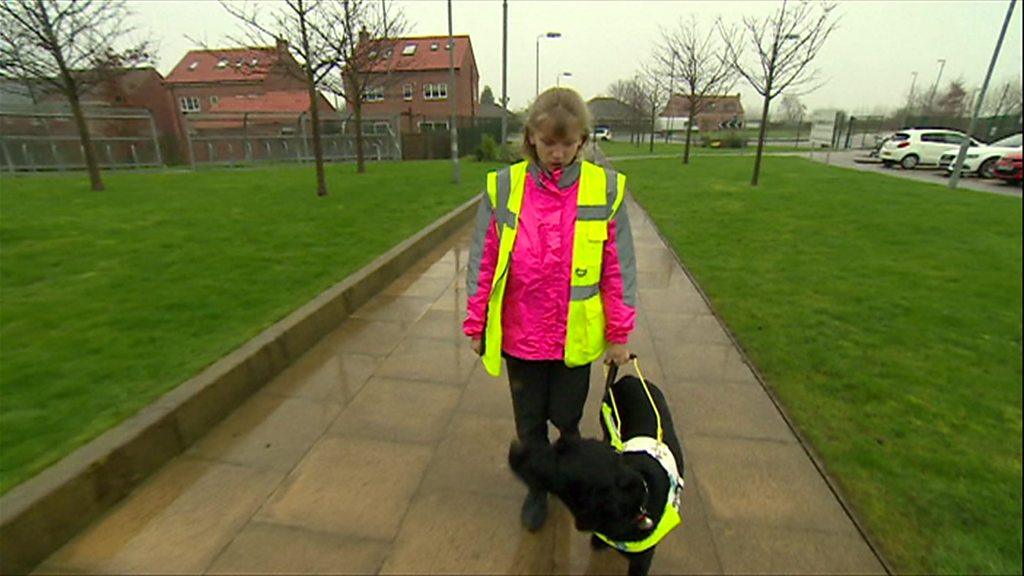UK guide dog charity wants problem solving pups
- Published
- comments
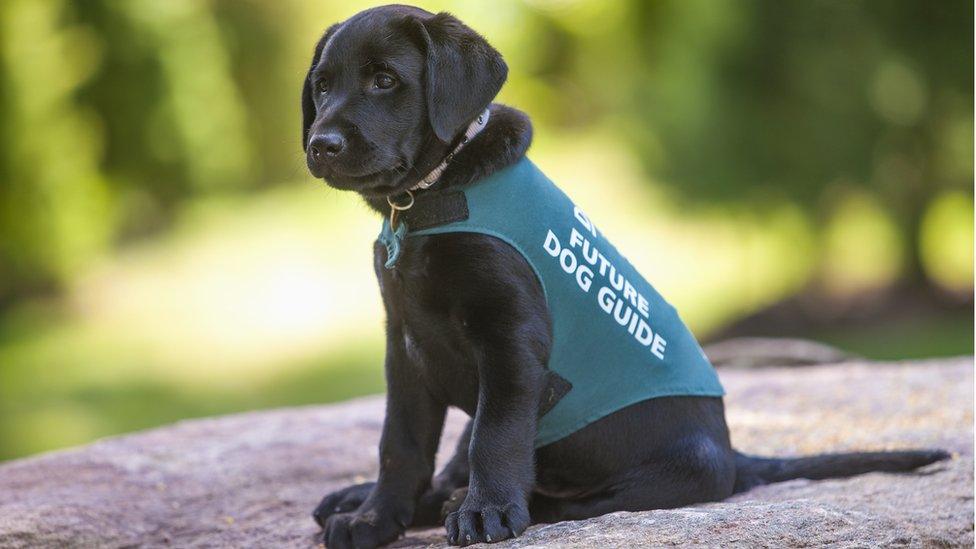
A UK charity has launched a research project to help discover which pups are top dogs!
The research project called Puppy Cognition has been launched by the UK sight-loss charity Guide Dogs.
It's aim is to help the charity to get an early idea of which puppies might make a good guide dog in the future by seeing how they react to a number of fun challenges.
The dogs will then be monitored as they grow up over two years to see how many of their early behaviours stay with them as they get older.
How will the study work?
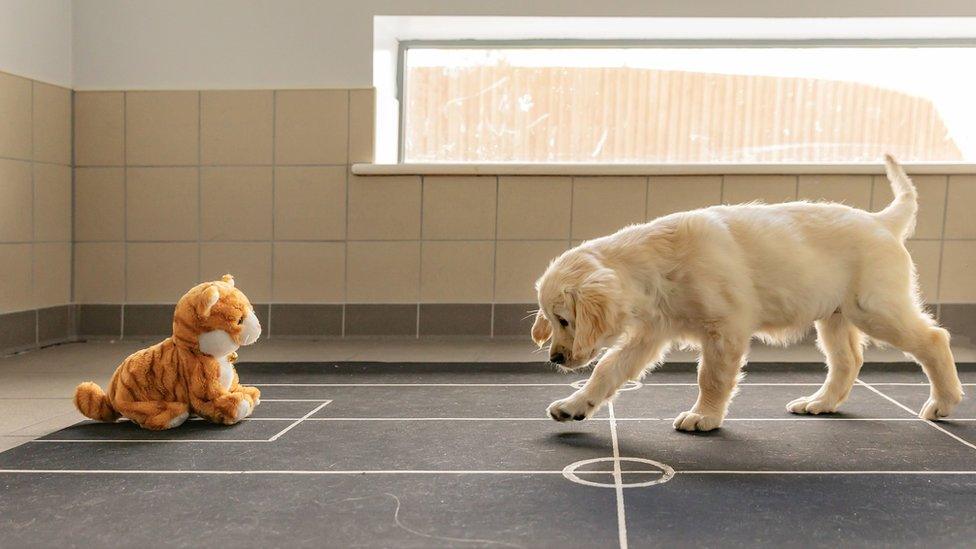
This puppy is meeting an interactive cat toy that meows, to see how it behaves.
As part of the project the researchers will follow around 600 seven-week-old puppies over the next year and study how they respond to six tasks.
These tasks are designed to test how the puppies might react to certain situations.
They include a task that the puppies can't solve, where a sealed box of food is placed in front of the puppy and it's response is monitored, before the food is opened 30 seconds later.
There is also a sniff test, where the puppy is given two tubes - one with food and one without - which are switched to see if the puppy can figure out where the food is.
As well as this, there is a challenge to see how the puppies respond to 'surprising events', like a bin bag with some crumpled paper in it, an umbrella opening and a reflective metal sheet.
The researchers hope the puppies will find the activities fun and interesting, but if a puppy shows signs it does not want to take part in the challenge, the task will be stopped.
Problem solvers!
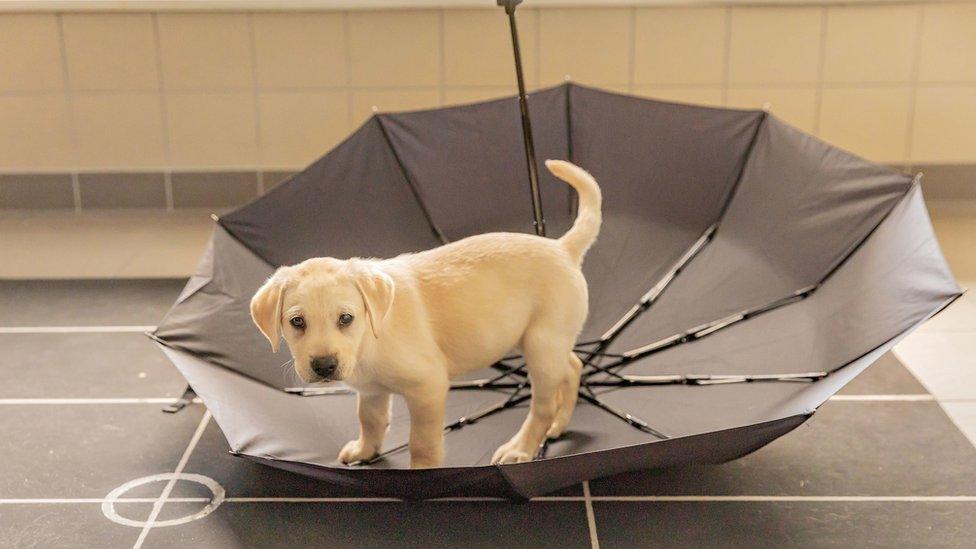
This puppy is taking part in the 'surprise' event to see how it deals with surprising situations
Speaking about the research project, Dr Helen Whiteside, Chief Scientific Officer at Guide Dogs said: "What we're looking at is how our dogs are able to problem solve.
"And we know with people that that's always different - different people learn in different ways, they solve problems in different ways, they think in different ways."
Becky Hunt, a scientist at the charity gave an example of when this kind of behaviour would be useful in a guide dog: "If they're walking down the street and there's a car parked on the road and there's not enough space for both of them to fit through, the dog has to kind of solve that problem.
"Is it safe to go around and walk around that car?"
- Published24 March 2014
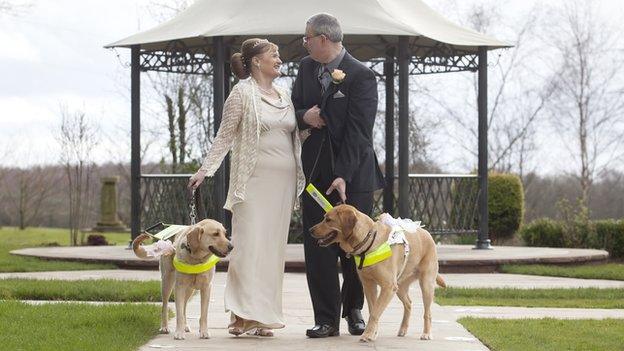
- Published15 June 2021
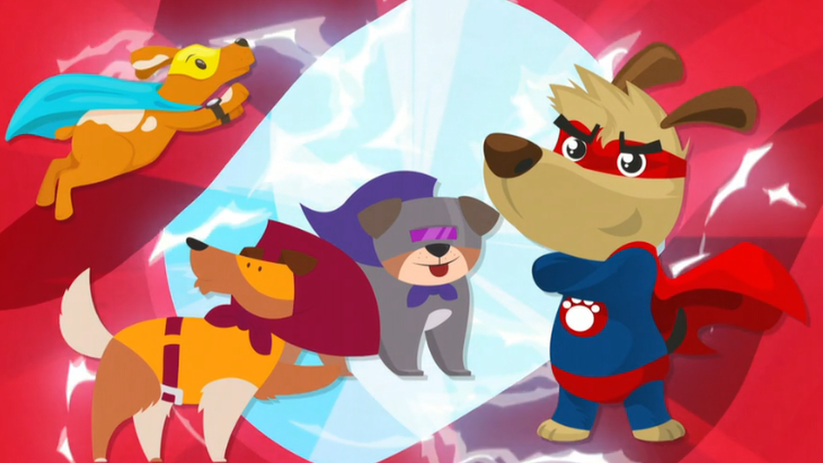
- Published24 January 2017
